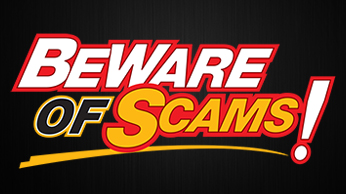Rumors and scams are common during emergency and crisis situations. The city of Garland offers the following information to protect residents:
- Find trusted sources of information
- Share information from trusted sources
- Discourage others from sharing information from unverified sources
To find trusted sources, look for information from official public health and safety authorities. Find many official sources at coronavirus.gov. Check state and local government or emergency management websites and social media accounts for trusted information specific to your area.
On social media, be sure to check for a blue verified badge next to the account name. This tells you it’s an official account.
Visit the FEMA website to check the facts on COVID-19 related rumors.
The Senior Source in Dallas has posted a list of the top COVID-related scams. For more information, contact the Senior Source at 214-823-5700 or efsc@theseniorsource.org.
Here are some additional scam alerts: COVID Scam Alert pdf
Identifying and Reporting Fraud and Scams
The Texas Attorney General’s Office website has important tips about current scams and how to report scams and fraud. Their website gives the following warning signs:
- They contacted you – When you contact a business, you know who’s on the other end of the line. But when someone contacts you first, you can’t be certain they’re telling the truth. You don’t know if they are whom they say they are. Remember, email addresses and caller ID information can be faked.
- They dangle bait—usually money – Let’s face it: People simply don’t give away large sums of money easily. If someone dangles bait in front of you—a big prize, a shopping spree, an easy loan — for nothing, they’re probably lying.
- They want your personal information – Anytime anyone asks for your personal information — bank accounts, social security number, etc. — you should be on alert. Don’t give it away quickly or easily, especially to someone you don’t know. You may become a victim of identity theft.
- You have to pay them first – If someone offers you a prize, debt relief, or employment — but first you have to pay an upfront fee to get it —you’re probably being scammed.
- You have to wire money or send gift cards – If you’re about to wire money or send gift cards to someone in order to receive a prize, or pay off a debt collector that contacts you … STOP! This may be a scammer trying to take your money.
Don’t Scam the Scammer – Trying to scam your scammer — to get “revenge” — is a terrible idea. Don’t do it. You won’t fool them, and you may end up getting scammed after all.
U.S. Attorney General William P. Barr is urging the public to report suspected fraud schemes related to COVID-19 by calling the National Center for Disaster Fraud (NCDF) hotline (1-866-720-5721) or by e-mailing the NCDF at disaster@leo.gov.
The NCDF can receive and enter complaints into a centralized system that can be accessed by all U.S. Attorneys, as well as Justice Department litigating and law enforcement components to identify, investigate and prosecute fraud schemes. The NCDF coordinates complaints with 16 additional federal law enforcement agencies, as well as state Attorneys General and local authorities.
Information provided by city of Garland


